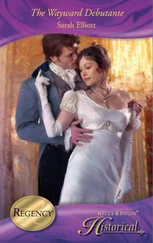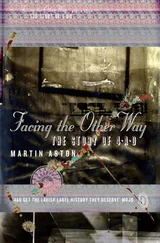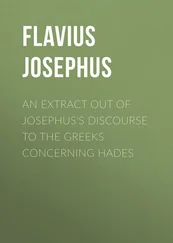Waiting in vain for the others to disclaim this outrageous opinion, I was tempted to preserve a dignified silence and leave them to perplexity. They refilled my glass, however, and begged for enlightenment; and it is not in the nature of the Scholar to refuse Knowledge to those who seek it.
“I said at the outset,” I began, “that if a murder were to take place in the Remington-Fiske family it would be the heiress who was murdered. My view has been vindicated by events.”
They became, as sometimes happens, rather cross with me, accusing me of talking in riddles and paradoxes; but after a little while they allowed me to continue.
“I will begin,” I said, “with something that happened last summer, though the true starting-point of the story is much longer ago than that. In the summer of last year, as Cantrip discovered on his excursion to Cambridge, Camilla obtained employment in a lawyer’s office — not, of course, because she needed money, but to acquire practical experience of the English legal system. The services which she offered, since she had as yet no professional qualification, were presumably of a secretarial nature. We know that she had sometimes done work of that kind for her father — you mentioned it, Selena, in connection with your case about the lease of Rupert’s flat.”
“With all her faults,” said Selena with a sigh, “I can imagine that Camilla might have been a very competent typist — a good deal better than Muriel, I dare say. If you could see the Statement of Claim she did for me this morning — oh, I’m sorry, Hilary, do go on with your story.”
“How,” I asked, “would you expect a young woman in Camilla’s position to go about obtaining such employment as I have mentioned?”
“I suppose,” said Selena, “that if there were any solicitors whom she knew personally, she would ask them if they could find a place for her for a few weeks during the summer. I suppose she might have asked Tancred.”
“Quite so. In view of the long-established connection with her family it is probable that she would have asked him; and in view of his desire that the connection should continue, it is improbable that he would have refused. I was much at fault in overlooking the significance of Tancred’s addressing her as “Camilla, my dear,” though he punctiliously referred to Deirdre as “Miss Robinson”—I should have asked myself how he came to be on more familiar terms with the heiress than with her cousin. The explanation was simple: she had been his temporary typist. Once one knew that, the truth was not far to seek.”
“It is perhaps not quite proper,” said Ragwort, “for a person intending to practice at the Bar to accept employment with a solicitor. But in these permissive times, I would not regard it as the first step on a path leading inevitably to murder.”
“In the present case, my dear Ragwort, your tolerance is misplaced. Imagine yourself in Camilla’s position — working in the office of the solicitors who drew up her great-grandfather’s Will, the Will under which she is a great heiress, and who administer the estate which she is to inherit — what do you think you would do in such circumstances?”
“I think I might be tempted,” said Ragwort, frowning a little, “to neglect my proper duties for a minute or two and have a small peep at the Will.”
“And what you would want to look at would be not merely the draft, used for everyday reference purposes, but the Probate, kept carefully in the safe and never actually read by anyone. It is, you will remember, a long and rather tedious document. The late Sir James had six children, and his Will contained elaborate and repetitive dispositions in favor of each of them in turn and their respective issue. All this, when the Will was prepared, would have had to be copied from the draft in a fair copperplate by some unfortunate clerk in the solicitor’s office. How his eyes and wrist must have ached, poor fellow, by the time he reached the dispositions in favor of the fourth child — is it any wonder if he paused to rest for a moment, or allowed his attention to be briefly distracted? And when he went back to his task to copy yet again the words ‘and with remainders over,’ is it any wonder if he resumed his task at a point in the draft a few lines beyond the point at which he had broken off?”
“No,” said Selena, “it couldn’t really happen.”
“My dear Selena, it is extremely common — it is the form of error known to students of textual criticism as haplography. So that when Camilla, succumbing to temptation, searches in the Probate for the magic words which make her an heiress — which make her interesting and desirable, which make her an object of envy, admiration and love, which make her the person she is and has always been — when she looks for them, they simply aren’t there. It is Deirdre who is the heiress.”
About us there was still the convivial hum of journalists and lawyers exchanging secrets and scandal; but those with whom I shared a table gazed at me in unaccustomed silence. Timothy refilled my glass.
“She would have known, of course, that the Probate copy was not the original. Her first step would have been to bespeak a photocopy of the original from the Probate Registry, in the hope that it was there that the error had occurred, rather than in the making of the Will. That failing, she instigated the application under the Variation of Trusts Act. No doubt she was genuinely concerned about the tax liability; but she would not solely on that account have taken the appalling risk that the judge might actually read the Probate copy. The chief purpose was to seize the opportunity offered by her position as temporary typist — she wanted a pretext for bringing into existence a number of neatly typed copies of the Will, remedying the unfortunate omission, whose authenticity would never afterwards be questioned. At the same time, she intended to contrive an occasion on which the Probate might appear accidentally to have gone astray.”
“Do you mean,” said Julia, with astonishment, “that it really wasn’t my fault?”
“Of course it wasn’t, Julia,” said Selena, “we always said it wasn’t.”
“It might all have turned out as she hoped if Deirdre had not been the kind of girl she was — an inquisitive and rather malicious girl, who found things out that she wasn’t supposed to know. Somehow or other — perhaps out of mere curiosity she applied to the Probate Registry for a copy of the Will — she discovered the truth. I wronged her in thinking that her letter to you, Julia, was a prelude to blackmail: she wanted your professional advice on establishing her claim. But the secret was too much for her to keep: on the day of the Boat Race she told Camilla what she had learnt, you know with what consequences.”
“So the way you see it,” said Cantrip, “Camilla didn’t start off meaning to do in the whole family?”
“No, I think not — I think that Deirdre’s murder was, as she said, a matter of impulse. But people who have found murder a convenient solution to their difficulties have a tendency to make a habit of it. And what had happened with Deirdre made her realize, I dare say, the precariousness of her position — it entirely depended on no one asking the right question at the Probate Registry. She would be secure in her inheritance only if all her cousins were to die without attaining a vested interest — that is to say, in the lifetime of her great-grandmother. In that event, as you will remember, there was an ultimate remainder to the estate of her deceased uncle, of whom she was the sole heir.”
“It would have been a matter then,” said Selena, “of some urgency — Lady Remington-Fiske is always referred to as being in her eighties and not, alas, in the best of health, though she seems to have a remarkable capacity for surviving her descendants. But I still don’t see how Camilla got the idea that Sebastian and I were going to blackmail.”
Читать дальше












